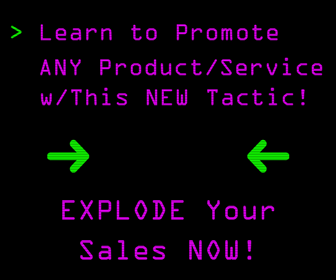A lot of businesses start with an idea.
The company's founder comes up with something they'd like to make or do, then builds a business around it.
Sounds pretty promising, right?
The thing is, an idea that seems great might not be very profitable after all.
Before you start investing significant capital in a small business, you need to make sure there's actually a market for your product or service.
You won't get anywhere if you're selling something that no one wants to buy.
You can also run into the opposite problem.
Some products have a massive market in theory, but it's so saturated with big-name players that it's nearly impossible for newer, smaller companies to gain a foothold.
These problems are why market research is so critically important.
You want to analyze the market before you start, as well as getting feedback from other professionals and from people in your target market.
In a recent Entrepreneur article, author Matthew McCreary explains how to start exploring the potential market for your new business.
Do market research.
Is anyone else already doing what you want to start doing? If not, is there a good reason why?
Start researching your potential rivals or partners within the market by using this guide.
It breaks down the objectives you need to complete with your research and the methods you can use to do just that.
For example, you can conduct interviews by telephone or face to face.
You can also offer surveys or questionnaires that ask questions like “What factors do you consider when purchasing this product or service?” and “What areas would you suggest for improvement?”
Just as importantly, it explains three of the most common mistakes people make when starting their market research, which are:
– Using only secondary research.
– Using only online resources.
– Surveying only the people you know.
Get feedback.
Let people interact with your product or service and see what their take is on it.
A fresh set of eyes can help point out a problem you might have missed.
Plus, these people will become your first brand advocates, especially if you listen to their input and they like the product.
One of the easiest ways to utilize feedback is to focus on “The Lean Startup” approach (read more about it here), but it involves three basic pillars:
Prototyping, Experimenting and Pivoting.
By pushing out a product, getting feedback and then adapting before you push out the next product, you can constantly improve and make sure you stay relevant.
Just realize that some of that advice, solicited or not, will be good.
Some of it won't be. That's why you should have a plan on how to receive feedback.
Here are six steps for handling feedback:
Stop!
Your brain will probably be in an excited state when receiving feedback, and it might start racing to bad conclusions. Slow down and take the time to consider carefully what you've just heard.
Start by saying ‘thank you.’
People who give you negative feedback won't expect you to thank them for it, but doing so will probably make them respect you and encourage them to continue be honest in the future.
Look for the grain of truth.
If someone doesn't like one idea, it doesn't mean they hate everything you've just said. Remember that these people are trying to help, and they might just be pointing out a smaller problem or solution that you should look into further.
Seek out the patterns.
If you keep hearing the same comments, then it's time to start sitting up and taking notice.
Listen with curiosity.
Be willing to enter a conversation where the customer is in control.
Ask questions.
Figure out why someone liked or didn't like something. How could you make it better? What would be a better solution?
Also, one way to help you get through negative feedback is to create a “wall of love,” where you can post all of the positive messages you've received.
Not only will this wall of love inspire you, but you can use these messages later when you begin selling your product or service.
Positive reviews online and word-of-mouth testimonials can help make a big difference.
Market research and feedback are critical parts of the process of starting a new business, but they're far from the only things you need to do before you commit to your latest idea.
You can read more about what you need to do before starting a small business in the full article from Entrepreneur.
CHALLENGE Yourself to Profit!
Free Download: Build Your Profit-Generating Online Business With This Free Blueprint
Sign Up, follow the easy steps and You'll get the tactics, strategies & techniques needed to create your online profit stream. It's free!



